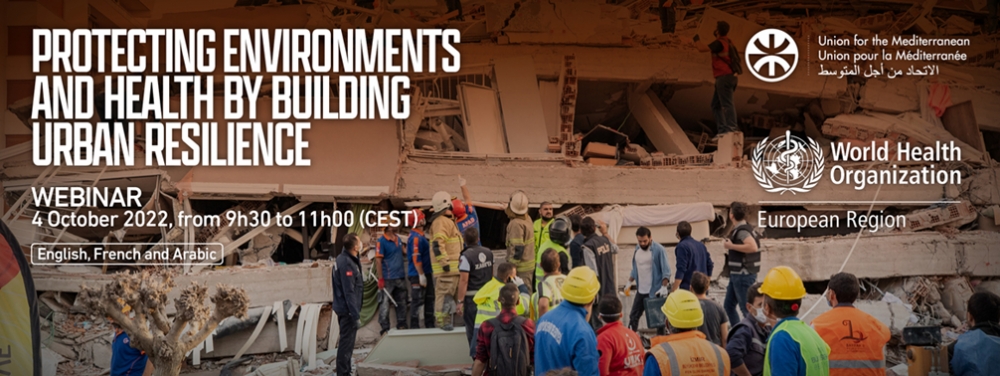Participation of the PABSEC International Secretariat in the virtual seminar on “Protecting Environments and Health by Building Urban Resilience”, 4 October 2022
Mr. Miltiadis Makrygiannis, PABSEC Deputy Secretary General attended the webinar on “Protecting Environments and Health by Building Urban Resilience“, that took place on Tuesday 4 October 2022.
The event was co-organized by the WHO Regional Office for Europe and the Union for the Mediterranean (UfM) and it was addressed mainly to practitioners and decision-makers in urban resilience and development and in environment and health, networks, and public authorities dealing with urban sustainability and resilience at national, regional and local levels, and academics, Civil Society Organizations, and other interested stakeholders.
The webinar aimed to reflect on the different dimensions of local preparedness and resilience and discusses the experiences and potential actions that can be taken by national and local governments to establish and support preparedness and resilience on a local scale.
The panelists, among them WHO specialists and representatives of UfM countries, pointed out that urban and spatial planning needs to increasingly consider preparedness and resilience as a determinant of public health at the local level. Climate change, inadequate urbanization patterns, and environmental degradation have left many cities vulnerable to disasters such as extreme weather events, chemical accidents, floods, earthquakes, power cuts, pandemics, or forest fires. The COVID-19 pandemic has further highlighted the links between health and urban environments, and the relevance of sustainable and resilient planning.
Several representatives of cities’ authorities took the floor and noted that various global frameworks have been established to address sustainable development, urban environments, and resilience, and awareness of the local benefits associated with the implementation of these global agendas is increasing. Much can be done at the city level by local authorities, planners, and managers to translate global commitments into local action, using urban planning and design as an instrument to reduce risks and vulnerabilities and build resilience – ultimately resulting in the protection of health and well-being. The “Protecting environments and health by building urban resilience” project initiated by the World Health Organization, aims to support local authorities in reflecting on the environment and health dimensions of local preparedness and resilience and promotes the application of urban planning approaches to establish safe, healthy, and sustainable cities.

